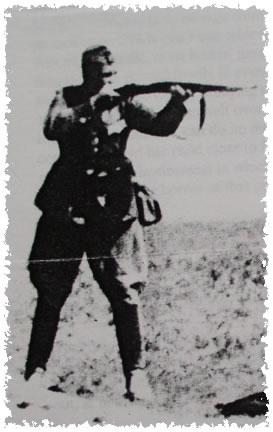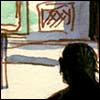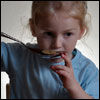Hague Court Issues Warrant for Qaddafi for War Crimes
By MARLISE SIMONS
PARIS — The issuing of warrants on charges of crimes against humanity for Col. Muammar el-Qaddafi, his son Seif al-Islam and his chief of intelligence raised the issue of how they could be captured.
JUSLABORAL.NET
|
|
Posted: 27 Jun 2011 07:37 AM PDT
|
| |||||
Marriage Equality: After New York, What Now For The GOP?
After the 33rd “yes” vote was counted
in New York’s Senate Friday night, it was momentous not in the least
because the Legislature had passed marriage equality – the state House
had already approved the measure — but also because they passed it with four Republicans voting in favor of the
historic measure in the Republican-controlled Senate. New York
became the sixth state to allow marriage equality, and certainly not the
last as polls show more Americans now favor marriage equality than who oppose it. And many across the nation celebrated with New York after Gov. Andrew Cuomo (D) signed the marriage equality legislation into law on Friday night.
But there was one group that wasn’t
cheering but who seemed like they should be – the Tea Partiers who
champion the 10th Amendment and want states to take control of their own
matters. That is, until the issue is whether states would be taking
charge of their own marriage laws.
For the past few years, the Republican
Party seems to be following a more libertarian path instead of claiming
the moral high ground, as did prior to the economy bottoming out at the
end of the Bush era. In fact, Bush’s views on marriage equality and
morality were viewed as a key contributing factor to his re-election in 2004. So how do the states’
rights-championing tenthers mesh with the previously embraced Religious Right?
THE DONORS: In New
York, it was a matter of following the money. Cuomo pulled together
Republican donors who could help him win over senators in the
Republican-controlled Senate. Using donors from the other party who were
sympathetic — the New York Times reported that one of the donors has a
gay son — helped sway some
votes. “A major target was James S. Alesi, a Republican from
suburban Rochester, who seemed tormented by his 2009 vote. […] The
coalition approached him from every angle. The Republican donors invited
him to a meeting on Park Avenue, telling him they would eagerly support
him if he backed same-sex marriage.” Alesi eventually became the first
Republican senator in New York to publicly support marriage equality.
But beyond just the politicians, it was a broad, unlikely group of allies who pushed for marriage equality. Labor unions rallied people while Republican donors funded lobbying efforts. Sean
Avery, a hockey player for the New York Rangers, publicly spoke out in support of marriage equality, as did New York City MayorMichael Bloomberg.
Cuomo and the unified coalition
of marriage equality supporters potentially created a roadmap for how
they passed the bill in their state. The question now is whether such a
bipartisanship force can be assembled again.
THE TEA PARTY: Tea
Party darling Rep. Michele Bachmann (R-MN) is having trouble figuring
out how to phrase her opinion about marriage equality. First, responding
to a question about marriage equality during the Republican
presidential debate, she showed her Tea Party roots and said,
“I don’t see
that it’s the role of a president to go into states and interfere with
their state law.” But she also said marriage should be between a man and
a woman, and added at the end that she would support a constitutional
amendment preventing marriage equality.
She gave a similar answer
in an interview with Chris Wallace on this week’s Fox News Sunday,
saying she supports New York’s right to enact marriage equality into law
because the 10th Amendment gives states that right. But again, she also
reiterated that she favors a constitutional amendment against marriage
equality.
For a group that favors states’
rights, no national Tea Party figure has stood up in favor of marriage
equality. When Archbishop Timothy Dolan of New York spoke out against
the measure before the Senate’s vote, he even described it as a form of government tyranny — using some Tea Party-style language rather than sticking to a strictly religious argument.
While Bachmann’s flirtation with
embracing New York’s decision lines up with her Tea Party-favoring,
states’ rights campaign mores, it doesn’t line up with the official
views of the party whose nomination she seeks.
THE REPUBLICANS: Eight years have greatly changed the political field since Bush won re-election on social issues in a year when 11 states
had ballot initiatives to create state consitutional bans
same-sex couples from getting married. Now, the Republican candidates
all still say they oppose marriage equality, but, as in New York, some Republican donors are standing on the other side of the issue. And nationwide polling suggests a majority of Americans
favor marriage equality.
So where does that leave the Republican party?
While preserving traditional marriage was a tenet of the Republican party’s platform in 2008, it is not an issue
mentioned prominently on the Republican National Committee’s website in
2011. Prominent Republicans including former Vice President Dick Cheney and Bush’s daughter Barbara Bush now support marriage equality, but Republican presidential candidates are focusing on their economic plans rather than their social views. In the all-important Iowa caucus, supporting marriage equality or civil unions could be trouble
for a
campaign in Iowa, with 58 percent of Republican Iowa caucus-goers
polled saying they would not vote for a candidate who even supported
civil unions.
Former Utah Gov. Jon Huntsman (R) supports civil unions, while former Gov. Mitt Romney (R-MA) only says people in nontraditional relationships should be given some rights.
Meanwhile, openly gay Republican presidential candidate Fred Karger has been all but ignored by the media and shut out of the presidential debates and other key events. As for the rest of the crowded Republican
field, the candidates are playing to their base,
either opposing marriage equality outright or saying only that it is up
to the states to decide. (A comprehensive rundown of the 2012
candidates and their positions on LGBT issues can be found here.)
That opinion may work for now among conservative primary voters and entrenched marriage equality opponents, but the tide is turning the other way – potentially leaving the Republicans behind.
Evening Brief: Important Stories That You May Have Missed
After reports
surfaced that Chief Justice David Prosser choked his colleague, fellow
Justice Ann Walsh Bradley, while arguing with her last week, Fox News
called for the justice’s resignation. No, not Prosser’s. Fox’s Greta Van
Susteren thinks that “Chief Justice Shirley Abrahamson is not doing her job to lead the court and to give confidence to the people of Wisconsin.”
The recent Republican fix-all for the
economy — cut spending to create jobs — may be supported by the GOP’s
presidential candidates, but the facts sure don’t . The states that have cut back the most on their spending have watched
their economies lose the most jobs.
Calling the fight for gay equality
“one of the most urgent and important human rights struggle of all
times,” Secretary of State Hillary Clinton spoke in favor of the New York vote
to legalize same-sex marriage today at State Department LGBT pride
event and asked her colleagues “to look for ways to support those who
are on
the front lines of this movement.”
Rep. Michele Bachmann was off to an aggressive start to her official presidential campaign today in Iowa as she unwittingly compared herself to John Wayne Gacy of Waterloo, Iowa, who achieved notoriety for murdering of 33 people in the 1970s.
“That’s the kind of spirit that I have, too,” Bachmann said.
A host of industry emails examined by
the New York Times show that the buzz over natural gas as a replacement
energy source may not be warranted and calls forth questions
about the amount of natural gas that can be successfully extracted, the
economics of such extraction and the safety of the shale fracking
process.
|
|
 |
Monday, 27 June 2011 |
Today from VOANews.com |
|
Zimbabwe PM Tsvangirai Vows to Remain in Unity Gov't Despite 'Provocations'PM Tsvangirai said he will not respond to what his party calls ZANU-PF provocations even if he himself is arrested as threatened |
 |
Zimbabwe Capital Gov't Threatens Property Seizures Over Unpaid Water BillsHigh Court gives City Council permission to attach and sell the properties over unpaid rates |
|
Eastern Zimbabwe Plantations Face Grim FutureSome experts believe many crops and plantations in Manicaland have been destroyed for the foreseeable future |
 |
US 'Deeply Disappointed' in Kimberley Process Meeting on Zimbabwe DiamondsDiamond activist Farai Maguwu said the Kimberley Process's ability to monitor troubled zones like Marange has been severely eroded |
|
Harare Gov't Tense as Zimbabwe Police Arrest Top Aide to PM TsvangiraiState Media accused Jameson Timba of dispensing 3 million British pounds to journalists to undercut President Mugabe's prestige |
|
IMF Says Zimbabwe Lacks Capacity to Increase Salaries of Civil ServantsThe IMF said Harare should focus on establishing a stable, low-inflation environment allowing for timely payment of civil salaries |
 |
US First Lady Meets Archbishop Tutu and Cape Town YouthMichelle Obama urges youth to look after their health, because their future depended on it |
 |
Harare Merchants Forced to Buy Portraits of Zimbabwe President MugabeBusiness owners and workers in and around Market Square and the Gulf Complex say shop owners were threatened to buy the portraits |
 |
Zimbabwe Army Chief Calls Prime Minister Tsvangirai a Security ThreatPrime Minister Tsvangirai repeated his comments of Sunday saying that the country's security heads are improperly meddling in politics |
|
Kimberley Process Meeting Ends Without Consensus on Zimbabwe DiamondsCanadian activist Martin said that in light of Congolese chairman Yamba's statement, the meeting was a 'huge defeat' for Kimberley |
|
| More News Headlines | |

RFE/RL Headlines
6/27/2011 8:33:32 PM
A daily digest of the English-language news and analysis written by the staff of Radio Free Europe/Radio Liberty RFE/RL is looking for guest bloggers, preferably writing from and about our broadcast region. If you're interested, drop us a line at webteam@rferl.org. |
Features
 Azerbaijani President's Daughters Tied To Fast-Rising Telecoms Firm
Azerbaijani President's Daughters Tied To Fast-Rising Telecoms Firm
Azerfon is one of Azerbaijan's hottest telecoms companies and the country's only provider of 3G services. But questions about who owns the firm and how it acquired its 3G monopoly have remained unanswered. RFE/RL Azerbaijani Service correspondent Khadija Ismayilova has unearthed documents showing that a majority stake in the firm is controlled by the two daughters of Azerbaijan President Ilham Aliyev. More  Russian Legislation Takes Aim At Human Rights Court In Strasbourg
Russian Legislation Takes Aim At Human Rights Court In Strasbourg
Russia is considering legislation that would allow it to effectively waive rulings from the European Court of Human Rights (ECHR), effectively abrogating Moscow's obligations as a member of the Council of Europe. Rights worker say Moscow is uneasy about potential ECHR rulings on the Mikhail Khodorkovsky and Sergei Magnitsky cases. More  'Tiger's Wife' Author Tea Obreht Talks About Death And (Balkan) Breakups
'Tiger's Wife' Author Tea Obreht Talks About Death And (Balkan) Breakups
Belgrade-born American writer Tea Obreht's debut novel, "The Tiger's Wife," recently was awarded the 2011 Orange Prize for Fiction. The book is set in an imaginary Balkan country, where the main character investigates the death of her grandfather after the wars of the 1990s. Obreht has sold the rights to her second, unwritten, novel to Random House. Slobodan Kostic of RFE/RL's Balkan Service spoke to Obreht, in Serbian, about her life and work. More  One Year On, Kyrgyz President's Greatest Achievement May Be Yet To Come
One Year On, Kyrgyz President's Greatest Achievement May Be Yet To Come
Kyrgyz President Roza Otunbaeva -- a former foreign minister, diplomat, and longtime opposition figure -- is a very different leader compared to her predecessors in Kyrgyzstan and counterparts in Central Asia. RFE/RL Kyrgyz Service Director Venera Djumataeva looks at the achievements and failures of Otunbaeva's first year in office. More  Medvedev 'Frustrated' Over Karabakh
Medvedev 'Frustrated' Over Karabakh
Russian President Dmitry Medvedev is frustrated with the failure of his Armenian and Azerbaijani counterparts to reach a framework agreement on Nagorno-Karabakh and could refrain from organizing more talks between them, one of his senior aides has reportedly said. More  Minsk, Moscow On Trafficking Watch List
Minsk, Moscow On Trafficking Watch List
In its 2011 annual "Global Trafficking in Persons Report," the State Department also maintained Russia on the list for the eighth consecutive year for similar alleged failures. More  Kabul Pins Blame On Central Banker
Kabul Pins Blame On Central Banker
Earlier on June 27, Abdul Qadir Fitrat, who is currently in the United States, said he had resigned his Afghan central bank governorship because he feared for his life. More  ICC Wants Qaddafi On War Crimes Charges
ICC Wants Qaddafi On War Crimes Charges
Judges at the International Criminal Court in The Hague have issued arrest warrants for Libyan leader Muammar Qaddafi and his inner circle on charges of crimes against humanity in their attempt to quell a four-month-long uprising. More  Khodorkovsky Supporters Detained
Khodorkovsky Supporters Detained
Police detained about 10 activists on June 26 at a Moscow demonstration to mark jailed oil tycoon Mikhail Khodorkovsky's 48th birthday and his eighth behind bars. More  Armenian MP Boycott To Go On
Armenian MP Boycott To Go On
The five parliament deputies representing the Zharangutyun (Heritage) party demonstratively walked out of the 131-member assembly on February 28 following Sarkisian's new power-sharing agreement with his junior coalition partners, the Orinats Yerkir and Prosperous Armenia (BHK) parties. More  Uzbeks Fined For Protesting Censorship
Uzbeks Fined For Protesting Censorship
Two Uzbek journalists were temporarily detained and fined after trying to begin a hunger strike outside the presidential palace in the capital on the country's "Day of Media Workers" to protest media censorship. The detentions and punishment came as Uzbekistan officially marked Day of Media Workers on June 27. More  Rights Group Cites Russian Cop Threat
Rights Group Cites Russian Cop Threat
A Russian human rights organization says its activists in the North Caucasus republic of Chechnya and the city of Nizhny Novgorod are under threat. More  Baku Attack Suspects Nabbed
Baku Attack Suspects Nabbed
Azerbaijani police have arrested three of the four men suspected of attacking U.S. journalist Amanda Erickson and British human rights activist Celia Davies in Baku on June 15. More  Tajik Children, Facing Mosque Ban, To Be Offered Islamic Courses
Tajik Children, Facing Mosque Ban, To Be Offered Islamic Courses
The head of Tajikistan's Council of Islamic Scholars says a special Islamic education program for children is being planned to quell criticism of a draft law banning children from entering a mosque. More  Wife Of Jailed Uzbek Activist Says His Health Deteriorating
Wife Of Jailed Uzbek Activist Says His Health Deteriorating
Relatives of jailed Uzbek human rights activist Alisher Karomatov say that he has serious health problems. More  Tajiks Complain Of Compensation
Tajiks Complain Of Compensation
The coordinator of the Tajik program to resettle thousands of people from the area around the Roghun Dam project says there are problems getting the villagers full compensation for their homes, preventing them from leaving. More  Iraq's Oil Industry To Be Monitored By Transparency Group
Iraq's Oil Industry To Be Monitored By Transparency Group
Iraq has committed to providing accurate figures about its oil revenues by agreeing to verify details of its oil industry with an international transparency organization. More  Serbia Is Not Amused
Serbia Is Not Amused
TV host Chelsea Handler and a coterie of on-screen humorists took what began as a mean-spirited jab at the irremediably whacked-out singer Amy Winehouse and spun it into a mean-spirited -- and uninformed -- jab at the nation of Serbia. More  The Week Ahead: June 27 - July 3
The Week Ahead: June 27 - July 3
The Week Ahead is a detailed listing of key events of the coming week affecting RFE/RL's broadcast region. More On June 25, about 100,000 pilgrims celebrated the 30th anniversary of the first appearance of what are described as apparitions of the Virgin Mary in the southern Bosnian town of Medjugorje. Since 1981, more than 30 million people have visited the shrine. The Vatican has not officially recognized the apparitions but has formed an investigative commission. More  A Picture Is Worth A Thousand Words: Ahmadinejad's Foot Language
A Picture Is Worth A Thousand Words: Ahmadinejad's Foot Language
An Iranian blogger has put together a series of pictures of Iranian President Mahmud Ahmadinejad in the presence of Supreme Leader Ali Khamenei and visiting world leaders. More  A Tale of Two Bailouts
A Tale of Two Bailouts
Greece and Belarus are both bankrupt. But Minsk shouldn't be expecting any bailouts from the international financial agencies. More |
|
| |||||||||||||||||||||||||||||||||||||||||||||||||||||||||||||||||||||

|
Newsletter del 28/06/2011
Nel vento solare il segreto dell'origine del nostro sistema planetario
Il
Sole mostra un arricchimento dell'isotopo 16O, mentre sulla Terra le
abbondanze relative degli isotopi 16O, 17O, and 18O sono proporzionali
ai rispettivi
pesi atomici
Leggi l'articolo |
Le galassie perdute
Secondo
le stime più recenti, l’universo osservabile contiene 200 miliardi di
galassie. Gli astronomi si chiedono perché siano così poche
di James E. Geach Leggi l'articolo |
Betelgeuse come non si era mai vista
Le
supergiganti rosse come Betelgeuse rappresentano uno degli stadi
dell'ultima fase della vita di una stella massiccia, in cui la stella
aumenta le sue dimensioni
ed espelle materiali con un intensità incredibile
Leggi l'articolo |
Come l'ameba riconosce i suoi 'parenti'
Quando le amebe Dictyostelium formano degli aggregati per produrre un corpo fruttifero e le spore, scelgono di farlo con le amebe geneticamente più
simili
Leggi l'articolo |
La funzione nascosta della retina
Oltre
ai coni e ai bastoncelli, i nostri occhi hanno cellule sensibili alla
luce che non servono per formare le immagini, ma sono cruciali nella
regolazione
del ciclo giorno/notte
di Ignacio Provencio Leggi l'articolo |
Vedere l'invisibile
Un
gruppo di ricercatori italiani sfrutta le più avanzate tecniche di
grafica computerizzata e i più rigorosi criteri scientifici per
realizzare straordinarie
«esplorazioni» virtuali all'interno delle cellule
di Monica Zoppé Leggi l'articolo |
I neuroni e le regole della velocità
Due
studi svelano che i singoli neuroni sono in grado di controllare la
velocità con cui vengono riciclate le vescicole sinaptiche da cui
vengono rilasciati
i neurotrasmettitori
Leggi l'articolo |
Antartide: il ghiaccio si fonde in profondità
In
15 anni, la fusione al di sotto della coltre glaciale è aumentata del
50 per cento: la variazione non può essere spiegata dal lieve aumento
della temperatura
nello stesso periodo
Leggi l'articolo |
Può sopravvivere il Mar Morto?
Irrigazione e attività minerarie stanno prosciugando il lago salato, ma la collaborazione internazionale potrebbe salvarlo
di Eitan Haddok Leggi l'articolo |
Una ragnatela di grafene per misure magnetiche ultra-precise
Il nuovo dispositivo si comporta come una valvola magnetica simile a quelle utilizzate nelle testine degli hard
disk oggi in commercio, ma con dimensioni molto più piccole
Leggi l'articolo |
La transizione di fase del plasma a quark-gluoni
Stando ai risultati dell'esperimento STAR il passaggio a uno stato di materia normale avverrebbe a 2 × 1012 Kelvin
Leggi l'articolo |
Neutrini: l'oscillazione è confermata dall'esperimento MINOS
L’esperimento
MINOS in particolare ha registrato un totale di 62 eventi di
trasformazione: se il processo non si verificasse, gli eventi osservati
dovrebbero
essere al massimo 49
Leggi l'articolo |
Cento anni di superconduttività
Osservata
per la prima volta un secolo fa, la superconduttività ha portato ad
applicazioni pratiche importanti, anche se il quadro teorico del
fenomeno è ancora
incompleto
di Roberto Di Capua, Marina Putti e Ruggero Vaglio Leggi l'articolo |
7 soluzioni radicali per l'energia
Dal
fotovoltaico quantistico alla benzina solare ai condizionatori
magnetici: tra tanti progetti visionari, ecco quali sono le innovazioni
tecnologiche che
potrebbero realmente rivoluzionare il futuro dell’energia
Leggi l'articolo |
I numeri più strani della teoria delle stringhe
Un
sistema numerico inventato nell’Ottocento e poi dimenticato potrebbe
spiegare nel modo più semplice possibile perché il nostro universo forse
ha dieci dimensioni
di John C. Baez e John Huerta Leggi l'articolo |
Dalla bioinformatica un farmaco contro la malattia di Fabry
La terapia è ancora in fase di sperimentazione ed è efficace solo per alcune forme della malattia
Leggi l'articolo |
Alta velocità per i vaccini
La biologia di sistemi, nuova area di ricerca, potrebbe rendere più rapido ed efficiente sviluppo e sperimentazione
di Alan Aderem Leggi l'articolo |
Stabilita la temperatura corporea dei dinosauri
I
grandi dinosauri sauropodi del Giurassico avevano una temperatura
corporea compresa fra i 36 °C e i 38 °C, simile a quella dei moderni
mammiferi e uccelli
Leggi l'articolo |
La scintilla interiore
Lo
specialista dell'udito Charles J. Limb sostiene che studiare il
cervello durante le improvvisazioni musicali può aiutarci a svelare il
mistero della creatività
e del genio di artisti come John Coltrane
Intervista di Alicia Anstead Leggi l'articolo |
Pazzi per la città: attenti allo stress
Uno
studio, condotto utilizzando la risonanza magnetica funzionale, ha
mostrato come due distinte regioni cerebrali che regolano le emozioni e
lo stress vengano
influenzate dalla vita in città
Leggi l'articolo |
|
| LA REPUBBLICA | |
| IL MESSAGGERO | |
| LA STAMPA |
Int. a CROSETTO GUIDO - "PER FARE IL MINISTRO COSI' BASTEREBBE UN RAGIONIERE" (GIOVANNINI ROBERTO) - a pag.6
|
| IL GIORNALE |
| IL GIORNALE |
| L'UNITA' del 27/6/2011 |  'NDRANGHETA IN TRASFERTA "LA LOMBARDIA SE LA COMPRANO I MURATORI" (ANDRIGO MARIO, ROZZA LELE) a pag. 22/23 'NDRANGHETA IN TRASFERTA "LA LOMBARDIA SE LA COMPRANO I MURATORI" (ANDRIGO MARIO, ROZZA LELE) a pag. 22/23 |
| LA REPUBBLICA del 27/6/2011 |





















 I had tons of vegetarian sausage on hand, and I always love a good
broccoli stir-fry, so I added some in to a simple veggie sautee, and the
result was delicious! I used
I had tons of vegetarian sausage on hand, and I always love a good
broccoli stir-fry, so I added some in to a simple veggie sautee, and the
result was delicious! I used  I honestly don't know why I didn't try this ages ago! These little
baked tempeh nuggets sat in my fridge for a couple days and were the
perfect snack. They'd be great in sandwiches too, but I just munched on
them as they were.
I honestly don't know why I didn't try this ages ago! These little
baked tempeh nuggets sat in my fridge for a couple days and were the
perfect snack. They'd be great in sandwiches too, but I just munched on
them as they were.  A simple vegetarian and vegan Asian dish of Japanese soba noodles,
served chilled with shiitake mushrooms and green scallions. If you're
vegan, make sure the soba noodles you buy are egg-free, as some are and
some aren't. You can always use another noodle, such as Japanese udon
noodles, to make this dish as well. Add more veggies to these chilled
Japanese soba noodles to make them more of a full meal if you'd like.
A simple vegetarian and vegan Asian dish of Japanese soba noodles,
served chilled with shiitake mushrooms and green scallions. If you're
vegan, make sure the soba noodles you buy are egg-free, as some are and
some aren't. You can always use another noodle, such as Japanese udon
noodles, to make this dish as well. Add more veggies to these chilled
Japanese soba noodles to make them more of a full meal if you'd like.